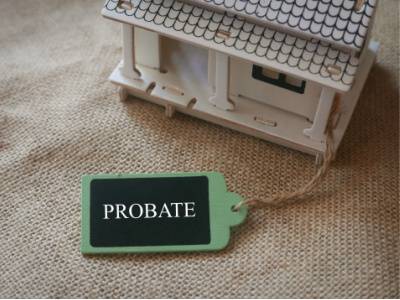Recent Blog Posts
How to Report Signs of Elder Abuse
 Elder abuse is a serious problem that affects many vulnerable seniors. A Texas lawyer can work closely with elderly clients and their families, and it is crucial for everyone to be aware of the signs of elder abuse and know how to report it if suspected. By taking action, you could help protect an elderly loved one from harm.
Elder abuse is a serious problem that affects many vulnerable seniors. A Texas lawyer can work closely with elderly clients and their families, and it is crucial for everyone to be aware of the signs of elder abuse and know how to report it if suspected. By taking action, you could help protect an elderly loved one from harm.
Recognizing the Warning Signs
Elder abuse can take many forms, including physical abuse, emotional abuse, sexual abuse, financial exploitation, and neglect. Some common red flags that may indicate elder abuse include:
- Unexplained injuries like cuts, bruises, or broken bones
- Sudden changes in mood or behavior, such as acting fearful, withdrawn, or depressed
- Poor hygiene, malnutrition, or dehydration
- Unpaid bills, unusual bank account activity, or changes to important legal documents
Legal Protections Against Elder Abuse in Texas
 Ensuring the safety and well-being of aging loved ones is one of the top concerns when receiving care. Unfortunately, elder abuse remains a significant problem, impacting numerous individuals. A Texas lawyer can discuss the legal protections with you for your family member.
Ensuring the safety and well-being of aging loved ones is one of the top concerns when receiving care. Unfortunately, elder abuse remains a significant problem, impacting numerous individuals. A Texas lawyer can discuss the legal protections with you for your family member.
Texas Laws Addressing Elder Abuse
The state of Texas takes elder abuse seriously and has enacted several laws to protect the elderly population. The Texas Human Resources Code, Chapter 48, defines elder abuse and outlines the responsibilities of the Texas Department of Family and Protective Services (DFPS) in investigating and addressing cases of abuse, neglect, and exploitation. The Texas Penal Code also provides criminal penalties for those who commit acts of elder abuse, including injury to an elderly individual and financial exploitation. These laws demonstrate Texas’ commitment to protecting the rights and well-being of its senior citizens.
How to Choose the Right Executor for Your Will in Texas
 Selecting an executor for your will is an important decision that requires careful consideration. You will want to ensure that you choose an executor with the knowledge and capability to administer your estate efficiently per your wishes. A Texas attorney can guide you in selecting the right executor if you own property or assets.
Selecting an executor for your will is an important decision that requires careful consideration. You will want to ensure that you choose an executor with the knowledge and capability to administer your estate efficiently per your wishes. A Texas attorney can guide you in selecting the right executor if you own property or assets.
The Role and Responsibilities of an Executor
In Texas, the executor (sometimes referred to as a personal representative) is the person or institution you name in your will to administer and distribute your estate after you pass away in accordance with your will’s provisions. The executor’s primary responsibilities involve tasks such as the following:
- Filing petitions with the probate court to open probate and be officially appointed executor.
- Notifying beneficiaries and creditors of your estate.
- Making an inventory of estate assets and valuation.
When Should Elders Use Asset Protection Trusts?
 As people age, they face a unique set of challenges and concerns, particularly when it comes to protecting their assets. With the rising costs of healthcare and the potential need for long-term care in the future, elders must carefully consider how best to safeguard their hard-earned wealth. One option that can provide peace of mind is an asset protection trust.
As people age, they face a unique set of challenges and concerns, particularly when it comes to protecting their assets. With the rising costs of healthcare and the potential need for long-term care in the future, elders must carefully consider how best to safeguard their hard-earned wealth. One option that can provide peace of mind is an asset protection trust.
An asset protection trust is a legal tool that allows a person to transfer ownership of their assets into the control of a trustee while providing instructions for how the assets should be used to provide for a person’s needs or distributed to other beneficiaries. The primary purpose of this type of trust is to protect assets from potential creditors or legal claims, ensuring that they will be preserved for the benefit and use of the person and their loved ones. An attorney with experience in estate planning and elder law can provide guidance on the types of trusts that may be used while ensuring that the proper steps are taken to protect a person’s assets.
What Is the Difference Between Limited and Plenary Guardianship?
 There are some situations where a person may require someone to assist with various areas of their life and make decisions on their behalf. This can occur in cases involving elders or adults with disabilities who may not be able to properly care for themselves, address concerns related to their finances, or manage other aspects of their lives. In these cases, a guardian may be appointed by the court.
There are some situations where a person may require someone to assist with various areas of their life and make decisions on their behalf. This can occur in cases involving elders or adults with disabilities who may not be able to properly care for themselves, address concerns related to their finances, or manage other aspects of their lives. In these cases, a guardian may be appointed by the court.
Guardianship is a legal relationship where a person (the guardian) is given the responsibility and authority to make personal and financial decisions for another person (the ward). There are two main types of guardianships: limited guardianship and plenary guardianship. An attorney with experience in issues related to elder law can provide guidance to elders and guardians in these situations, helping them understand their options and ensuring that there is a legal framework in place to meet a person’s needs.
Should My Estate Plan Include a Mental Health Declaration?
 An estate plan will include a variety of essential documents that allow you to protect your assets and ensure that your wishes will be carried out correctly. While wills and trusts can be used to address financial concerns and distribute your assets to your beneficiaries, other documents may also be used to ensure that your needs will be met during your lifetime. Advance medical directives can provide instructions regarding medical care and other personal needs, ensuring that you will receive the proper treatment in situations where you may not be able to communicate your wishes. While there are multiple types of advance medical directives, a Declaration for Mental Health Treatment can be used to ensure that you receive the proper psychiatric care. An attorney with experience in estate planning and elder law can advise you on the benefits of a mental health declaration and help you make sure your wishes will be followed should you need psychiatric treatment in the future.
An estate plan will include a variety of essential documents that allow you to protect your assets and ensure that your wishes will be carried out correctly. While wills and trusts can be used to address financial concerns and distribute your assets to your beneficiaries, other documents may also be used to ensure that your needs will be met during your lifetime. Advance medical directives can provide instructions regarding medical care and other personal needs, ensuring that you will receive the proper treatment in situations where you may not be able to communicate your wishes. While there are multiple types of advance medical directives, a Declaration for Mental Health Treatment can be used to ensure that you receive the proper psychiatric care. An attorney with experience in estate planning and elder law can advise you on the benefits of a mental health declaration and help you make sure your wishes will be followed should you need psychiatric treatment in the future.
Can Seniors Use Medicaid Payback Trusts to Protect Their Assets?
 As seniors age, one of their primary concerns is how to protect their assets while still being able to qualify for government benefits and meet their ongoing needs. Medicaid can provide crucial financial assistance for long-term care expenses, but it also has strict eligibility requirements, including limitations on the amount of assets a person can own before they will qualify for benefits. Because of these requirements, a person may be required to “spend down” their assets before they can qualify. However, other options may also be available, including the use of trusts.
As seniors age, one of their primary concerns is how to protect their assets while still being able to qualify for government benefits and meet their ongoing needs. Medicaid can provide crucial financial assistance for long-term care expenses, but it also has strict eligibility requirements, including limitations on the amount of assets a person can own before they will qualify for benefits. Because of these requirements, a person may be required to “spend down” their assets before they can qualify. However, other options may also be available, including the use of trusts.
One potential solution for seniors who are looking to preserve their assets and still receive Medicaid benefits is the use of a Medicaid payback trust. This type of trust allows a person to transfer their assets into a trust, which is then managed by a trustee on behalf of the senior. The funds in the trust are not counted as part of the senior's personal assets when determining eligibility for Medicaid. However, these trusts can be complex, and it is important to work with an attorney who has experience in estate planning and elder law to ensure that all legal and financial issues are addressed correctly.
What Is a Breach of Fiduciary Duty in a Probate Case?
 In the state of Texas, the estate of a person who passes away will go through a legal process known as probate. In these cases, a person is appointed as the executor or personal representative of the estate. This person will manage and distribute the deceased person's assets. The executor has a fiduciary duty to act in the best interests of the beneficiaries and handle all matters related to the estate with honesty, loyalty, and care.
In the state of Texas, the estate of a person who passes away will go through a legal process known as probate. In these cases, a person is appointed as the executor or personal representative of the estate. This person will manage and distribute the deceased person's assets. The executor has a fiduciary duty to act in the best interests of the beneficiaries and handle all matters related to the estate with honesty, loyalty, and care.
A breach of fiduciary duty occurs when the executor fails to fulfill their obligations and acts in a manner that harms or disadvantages the beneficiaries. In these situations, beneficiaries may work with an attorney to pursue probate litigation and address the executor’s wrongful actions. Breaches of fiduciary duty can take various forms, and they may include:
Choosing Between Guardianship and Medical Power of Attorney
 As our loved ones age, it is important to plan for their healthcare needs. Establishing guardianship and creating a medical power of attorney are two options that families may consider. Both choices have advantages and disadvantages, and the best option will depend on an elder’s specific needs and the role that family members will take when providing care and assistance. An attorney who works in the field of elder law can provide guidance on the available options while helping family members make sure they will be prepared to address the challenges that may arise as they provide care for an elderly loved one.
As our loved ones age, it is important to plan for their healthcare needs. Establishing guardianship and creating a medical power of attorney are two options that families may consider. Both choices have advantages and disadvantages, and the best option will depend on an elder’s specific needs and the role that family members will take when providing care and assistance. An attorney who works in the field of elder law can provide guidance on the available options while helping family members make sure they will be prepared to address the challenges that may arise as they provide care for an elderly loved one.
What Is Guardianship?
When guardianship is established, a court will appoint a person to make decisions on behalf of someone who is unable to fully care for themselves. Guardianship of the person will give a guardian the right and responsibility to make decisions about where an elderly person will live and what forms of medical treatment they will receive. To establish guardianship, evidence will usually need to be provided showing that an elder does not have the mental capacity to make informed decisions about their own healthcare. However, an elder may also agree to name a guardian who will provide them with assistance. If necessary, a guardian’s authority may be limited to certain areas, ensuring that the elder will have as much control over their own life as possible.
When Should an Elder Create a Living Will?
 A living will, also known as an advance healthcare directive, is a legal document that allows people to set down their wishes for the medical treatment they should receive if they become unable to communicate or make decisions for themselves. While people of all ages may create a living will, these documents can be crucial for elders who may be facing age-related health issues. When deciding whether to include a living will in their estate plan, elders and their families can work with an attorney to learn about their options.
A living will, also known as an advance healthcare directive, is a legal document that allows people to set down their wishes for the medical treatment they should receive if they become unable to communicate or make decisions for themselves. While people of all ages may create a living will, these documents can be crucial for elders who may be facing age-related health issues. When deciding whether to include a living will in their estate plan, elders and their families can work with an attorney to learn about their options.
The Importance of Planning Ahead
As a person ages, their health can become more unpredictable. It is not uncommon for older adults to experience serious illnesses or injuries that require medical intervention. By creating a living will ahead of time, elders can ensure that their wishes will be respected and followed when it comes to their healthcare.







